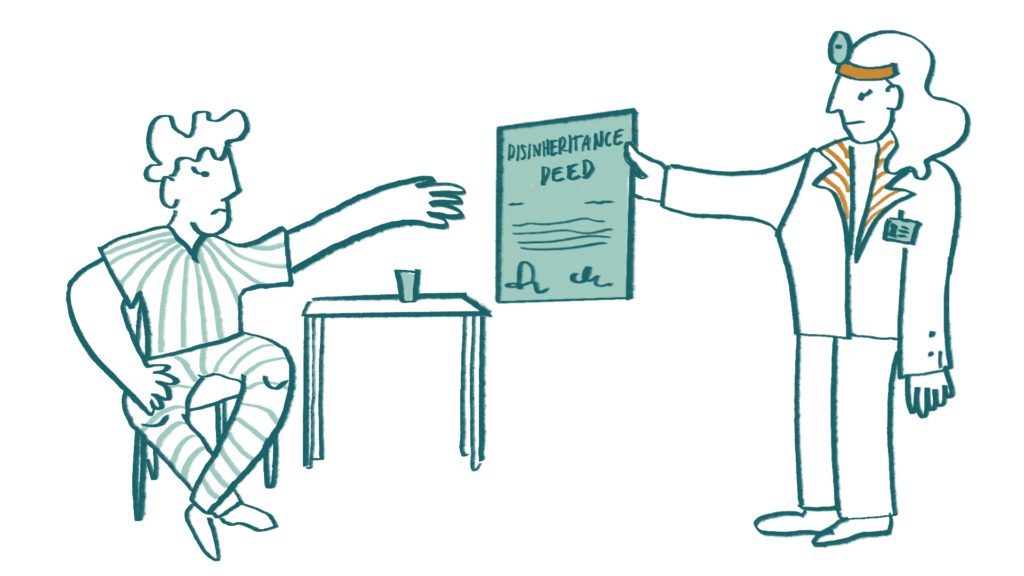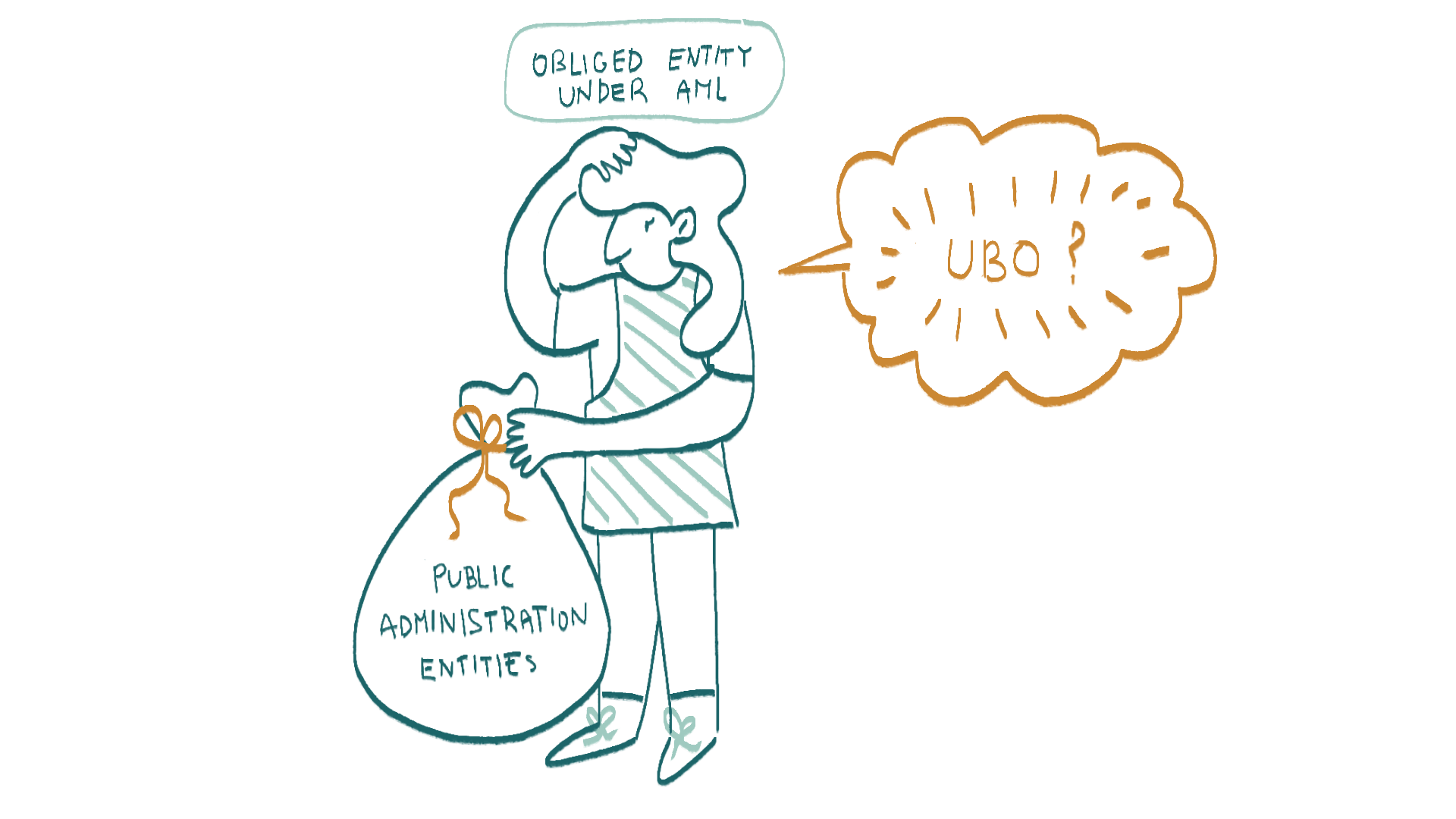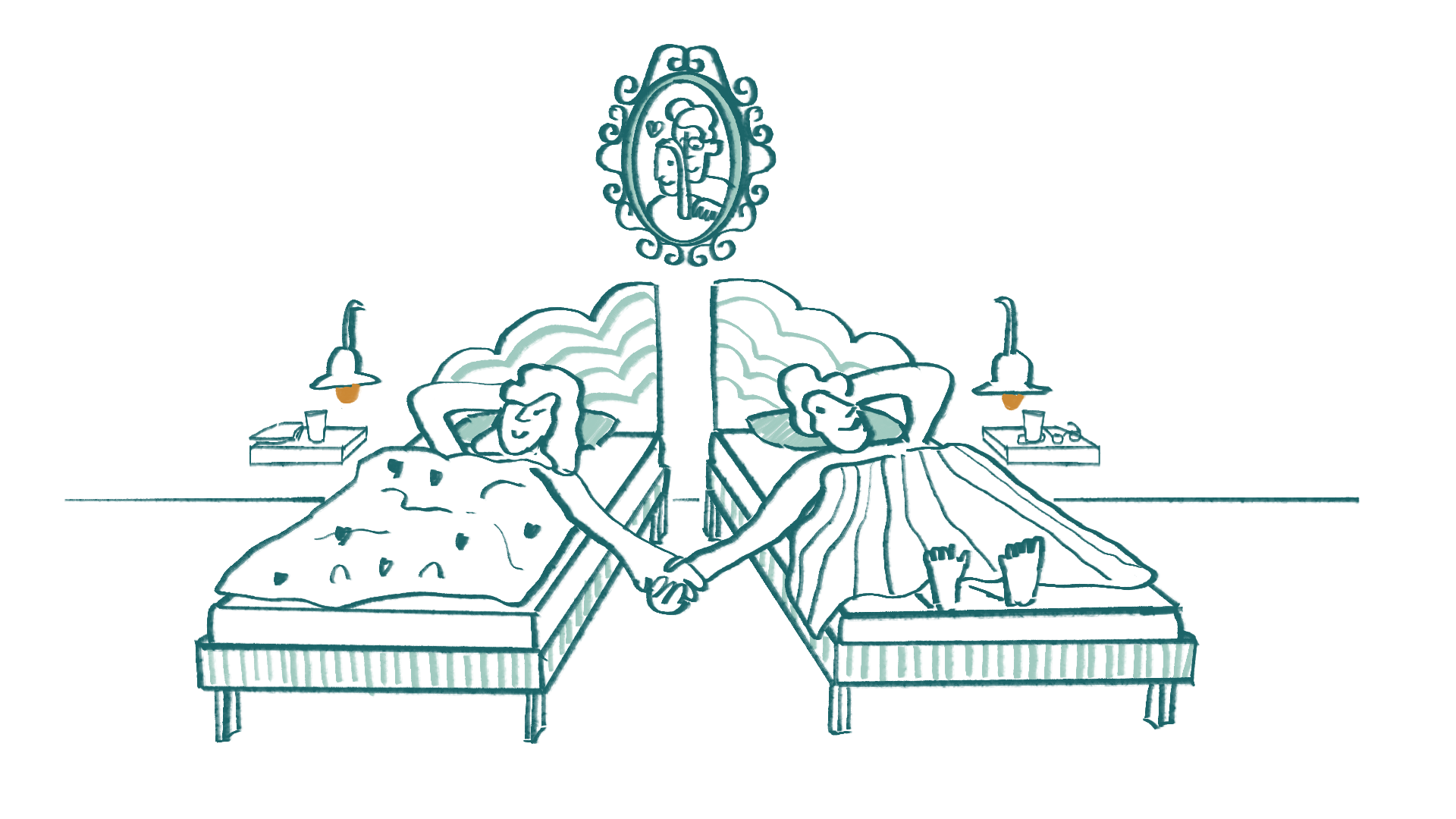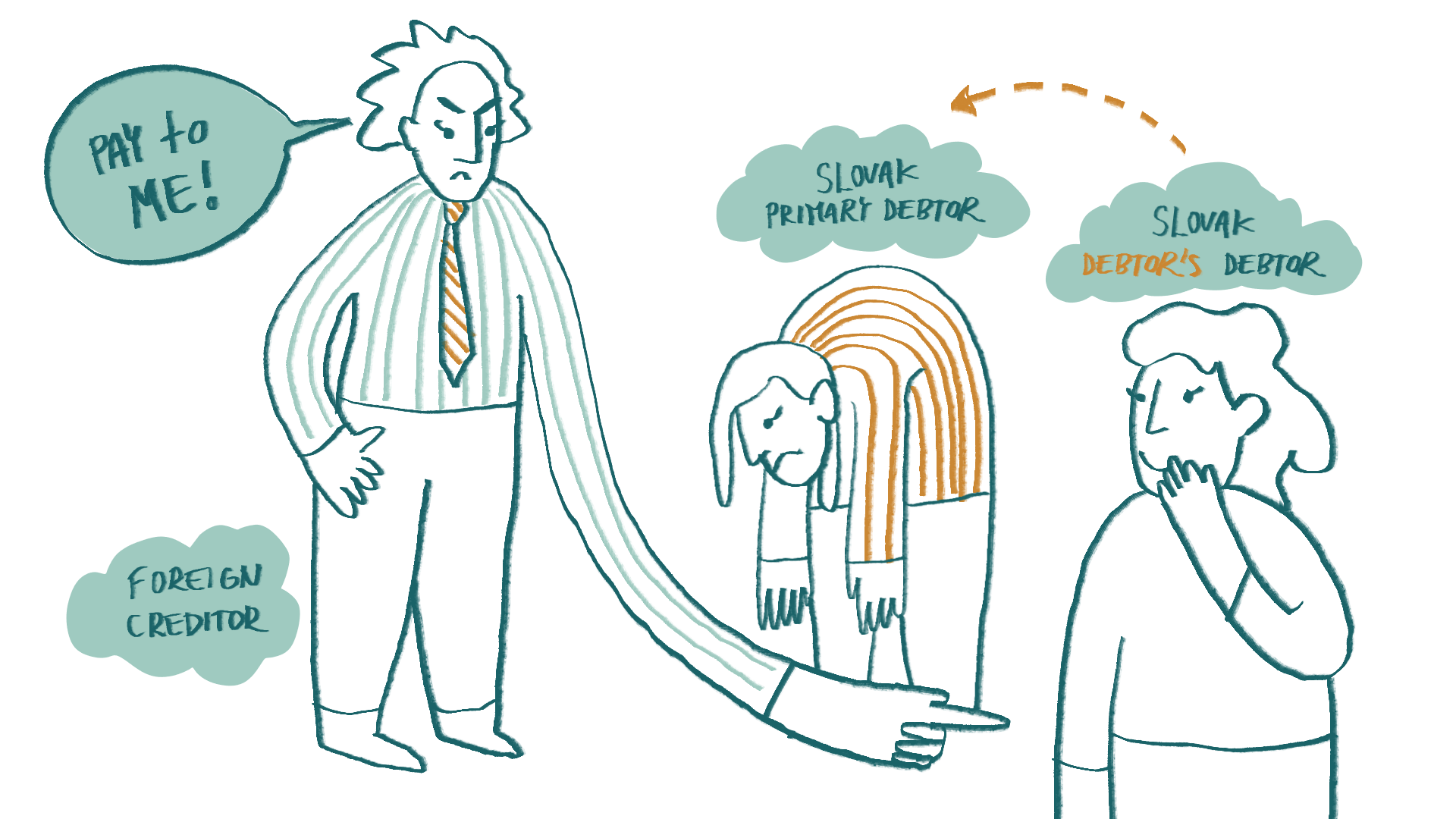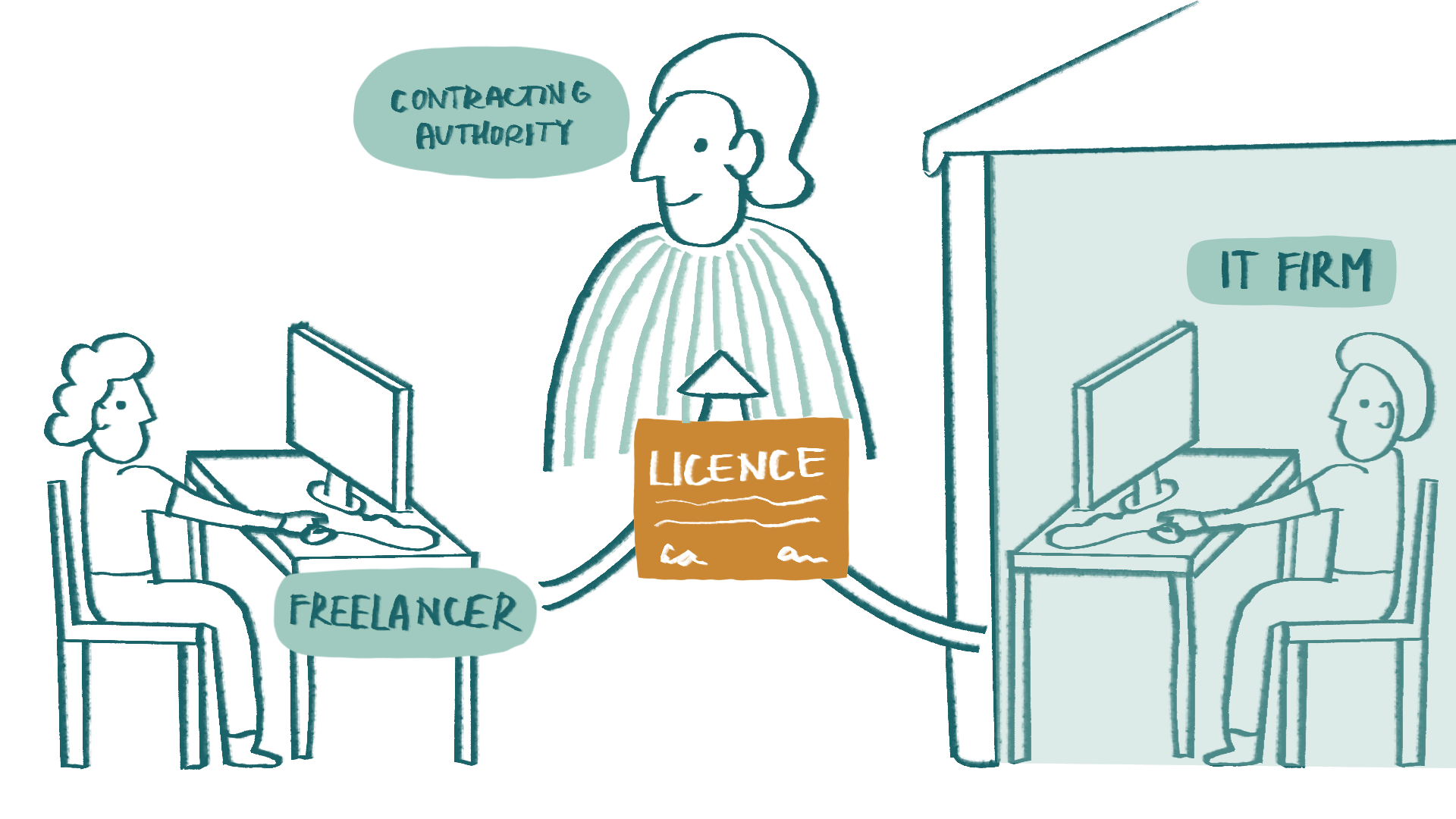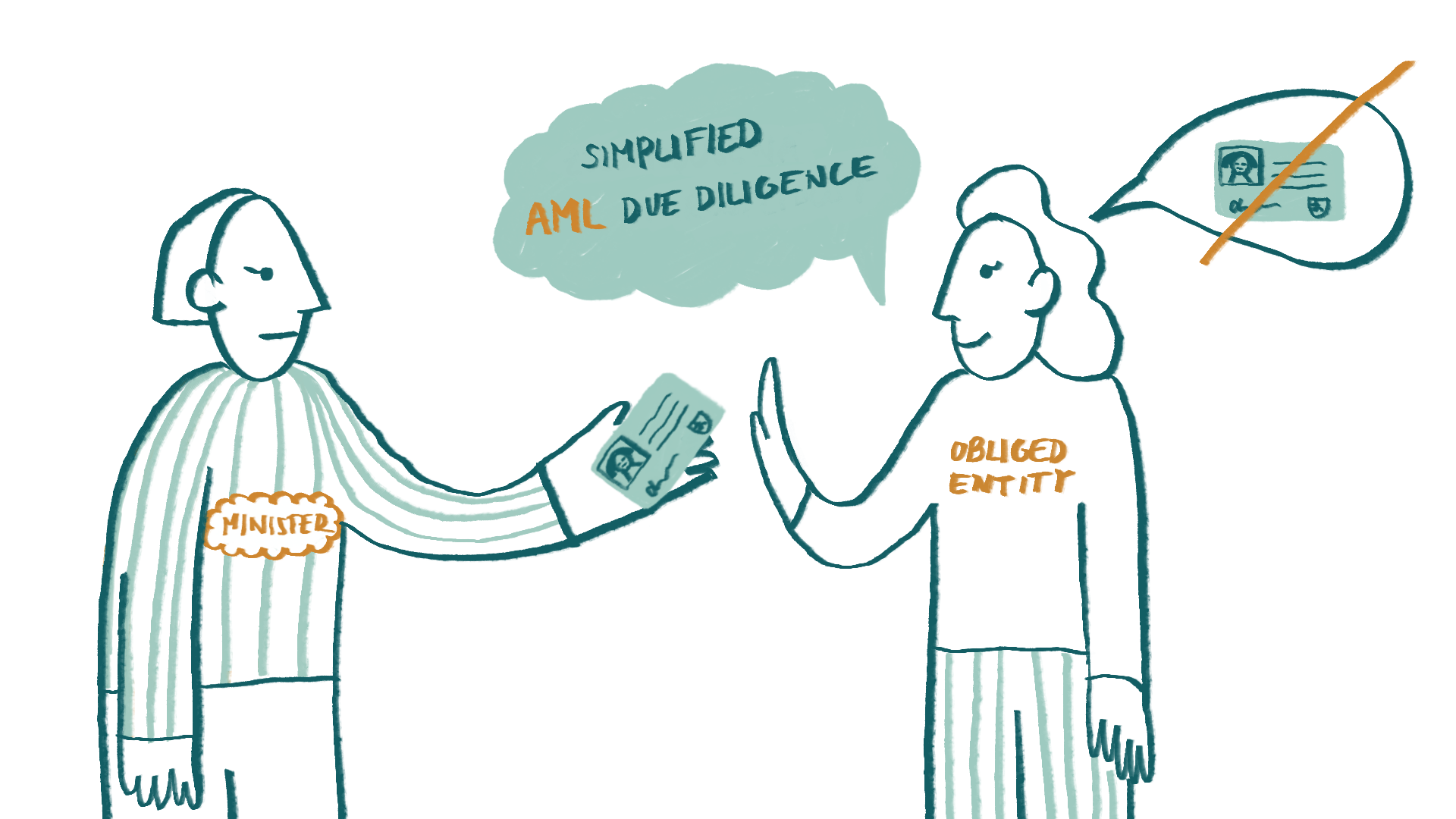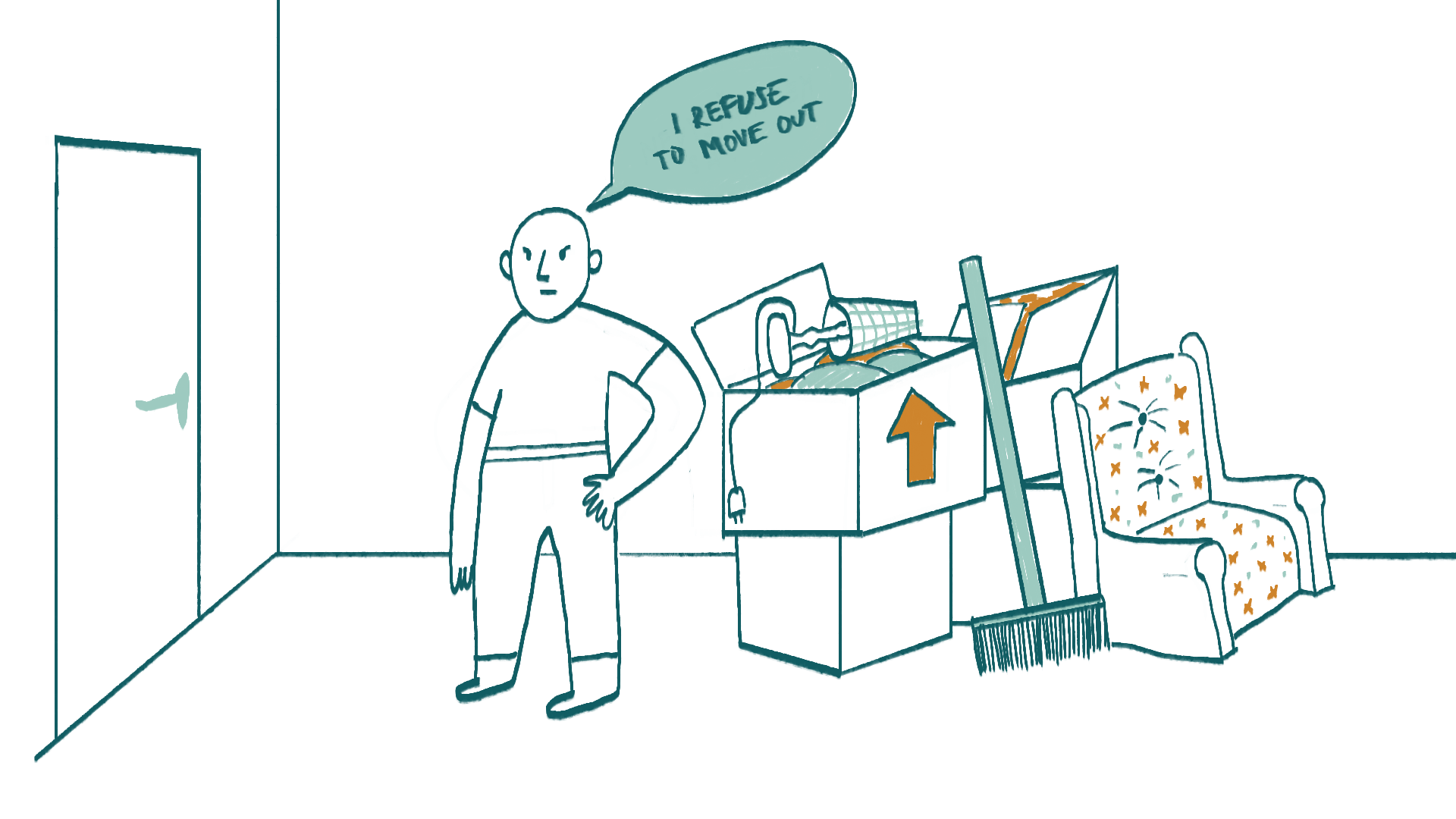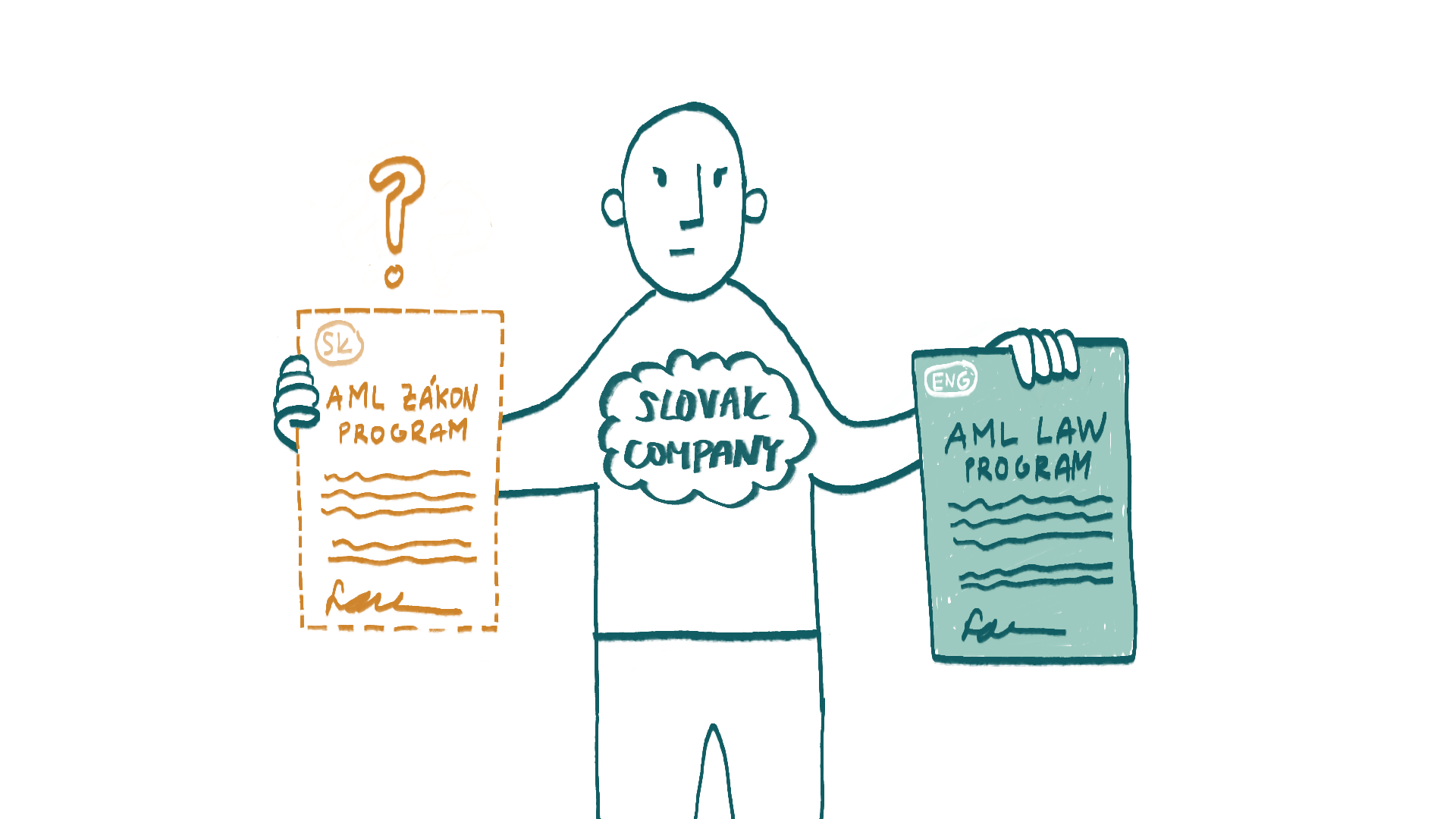Our 55-year-old son has been a psychiatric patient for more than a decade. In addition to various neuroses, he has been diagnosed with psychotic depression. He is treated at home but is constantly on medication. He has not been able to manage his finances for a long time. He has had a problem with his finances since he was a young man and has lost all his assets, including those of his wife. As a result of our helping him – through loans and guarantees – we have also suffered a considerable loss of assets. He currently receives a partial disability pension, but does not work long term, only occasionally part-time. Whatever money he gets, he spends immediately. His daughter, my adult granddaughter, looks after my son. Both my husband and I have made wills leaving our property to our granddaughter. However, we know that the son can contest the will on the grounds that he is an intestate heir. We are aware that our son, as our descendant, is always entitled by law to at least half of his share of the inheritance. If we do not disinherit him, our wills will be void in respect of that part. As one of the grounds for disinheritance is that the descendant “leads a permanent disorderly life”, we are interested to know whether mental illness, inability to manage money as evidenced by previous complex debts and loss of assets qualify as such ground for disinheritance.
Slovak Civil Code, Section 469a(1)(d) does not specify what it means to lead a “permanent disorderly life”. Even the available decisions of the Slovak courts have not clarified this term.
However, in 2011, the Supreme Court of the Czech Republic clarified this term in its decision no. 21 Cdo 190/2010. This decision states in general terms that: “Behaviour that clearly deviates from the general idea of behaviour in accordance with good morals can be described as leading a disorderly life. The conduct is then considered permanent disorderly in cases where the behaviour of the disinherited person shows signs of continuity (i.e. not merely random or sporadic) and long duration, in which, as a rule, it is no longer possible to expect a return to the normal way of life as it is perceived by the majority of society”.
The Czech Supreme Court then went on to specify that “it is therefore appropriate, in accordance with legal theory, to understand by leading a disorderly life, in particular, addiction to alcohol, drugs or gambling, neglect of compulsory maintenance, getting into debt without any obvious possibility of repaying the debt, acquiring the means of subsistence in an unfair manner, persistent avoidance of work or squandering of family property“.
And it is within this particular definition that your son’s case falls. If he has run up debts without being able to pay them off because he is not working, if you have helped him to pay off his debts but this has only resulted in you losing your property, then it is possible to find in these elements of his behaviour the signs of a permanent disorderly life. This appears to be a long-term condition and, given his age, it is unlikely to change. We assume that you will be able to prove this condition, if necessary, for example by witness statements or documents. In light of this, we believe it is possible to disinherit your son on these grounds.
However, a psychiatric diagnosis alone is not a ground for disinheritance. The fact that your son is constantly on medication, which may also affect his decision-making, does not legally make him a disorderly person and is not in itself a ground for disinheritance. What is relevant are the other circumstances you have described, namely debts, inability to manage finances and encumbrances on family assets.
In our opinion, it is possible for you to execute a deed disinheriting your son. We would only add that the rules for doing so are similar in form to those for making a will. The deed of disinheritance can be written and signed in your own handwriting, or in another written form in the presence of witnesses, or in the form of a notarial deed. The disinheritance deed must state the day, month, and year on which it was signed.

